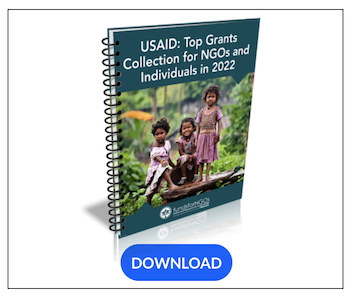
Deadline: 31-Oct-22
The Alliance for Advancing Health Online (AAHO) is excited to launch a second Request for Proposals (RFP) for global research focusing on harnessing the power of social media to increase vaccination confidence and uptake with an emphasis on enhancing routine immunization and educating health care workers on addressing vaccine hesitancy.
The Alliance for Advancing Health Online is bringing collaborators from the technology, health, global development, and academic sectors together to advance public understanding of how social media can best be utilized to better understand and increase the health and resiliency of communities around the world.
Areas of Interest
- The Vaccine Confidence Fund II will be funding projects that explore how social media can be leveraged to drive confidence in, and uptake of, COVID-19 vaccines and routine immunizations (i.e., childhood and adult immunizations included in the World Health Organization’s recommendations for routine immunization).
- They also encourage projects that look at how health care workers can be equipped to leverage social media and online engagement to promote vaccination confidence and uptake in their communities, or among health care workers themselves.
- Example interventions (not comprehensive) that applicants may want to consider exploring include:
- Use of chatbots and messaging for offline health
- How social media can be leveraged to reach priority populations
- Social media as a platform for public health messaging
- Online health communities and social norming interventions
- Research proposals should include the following:
- Well-defined problem statement that articulates a key research gap and specifies the population of interest, making it clear why this research is novel and how it will add to the current body of understanding.
- Proposed research methodology and approach. Priority will be given to causal impact studiesthat leverage experimental design (RCT) and other causal inference methods (ex: regression discontinuity, difference-in-differences). Applications should address: data collection (including sampling where applicable), bias correction, a detailed analysis plan and measurement of key outcome variables.
- A dissemination plan, including which academic journals and other media will be targeted.
- CVs of key project personnel and organizational information.
- They encourage proposals that include creative teams, with partners from different sectors. Applicants should detail the expertise of the team in their proposed research method as well as track record of disseminating findings in the proposed outlets.
- Timeline, budget and budget narrative.
Funding Information
- The range of awards will vary based on the scope of the research, but award amounts will range between $250,000 and $450,000. Please note this Fund is willing to consider proposals up to $500,000 provided there is strong justification for why additional funding is needed.
The Fund’s Principles
In addition to the requirements, they also expect that successful proposals will demonstrate how they are in-line with the Fund’s guiding principles as listed:
- Equity: Given the disproportionate impact the pandemic has had on historically marginalized or excluded communities globally, the Fund is committed to ensuring that equity is core to the work they support, and they prioritize equity as an essential principle. The World Health Organization (WHO) defines equity as the absence of avoidable or remediable differences among groups of people, whether those groups are defined socially, economically, demographically, or geographically.
- Community Engagement: From research design through to research implementation and dissemination of findings, they highly encourage all applicants to engage proactively and authentically with the communities they are seeking to serve. This engagement would include seeking to understand the obstacles, potential solutions, and assets to build on, from the perspective of the community – ensuring that their voices and experiences are centered in the work.
- Cross-Sectoral Collaboration: This Fund highly encourages cross-sectoral collaboration and crossfertilization of ideas from outside traditional disciplines. While not exhaustive, disciplines that this Fund would be interested in seeing further integrated and supported include behavioral sciences, communications (including marketing), data science, technology, and public health.
- Scalable: Challenges and solutions to increasing vaccination confidence and uptake can often be context specific. While this Fund seeks to support historically excluded or marginalized communities globally, this Fund’s priority is also to surface insights that are generalizable and potentially scalable, at least within focus communities globally.
- Actionable: Research should be immediately actionable and valuable for the global health community, rather than highly theoretical. The Fund is looking for empirical research findings that hold the potential to improve and contribute to practical learning and implementation science in the public health community.
- Information Sharing: The Fund views information sharing as critical, as it will enable the global health community to collaborate effectively and efficiently to solve the toughest challenges around increasing vaccination confidence and uptake. To that end, this Fund is interested in supporting proposals that are committed to disseminating insights, data, and learnings from their work as public goods for implementers to utilize in the design and execution of their vaccine campaigns and to continue to advance the global agenda around vaccination confidence and uptake.
Eligibility Criteria
- Research that takes place in any country is eligible. The goal of the RFP is to ensure diversity of research globally – both high-income and low-income countries.
For more information, visit Vaccine Confidence Fund.
